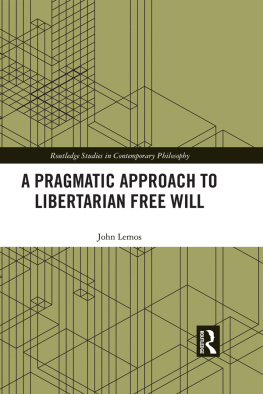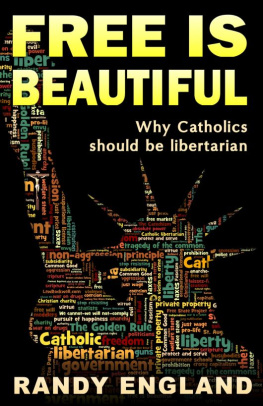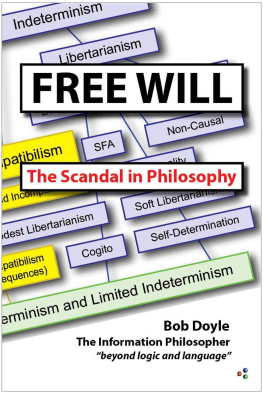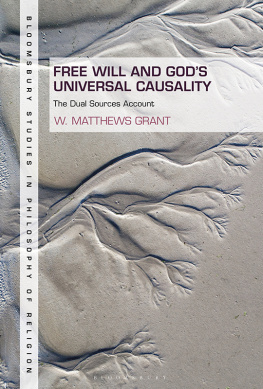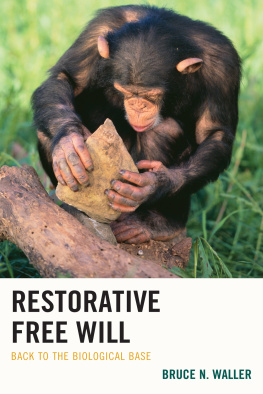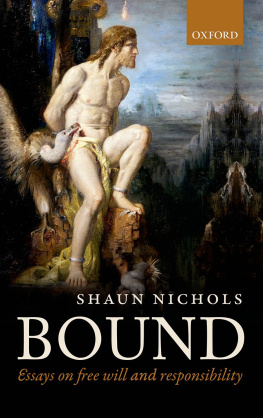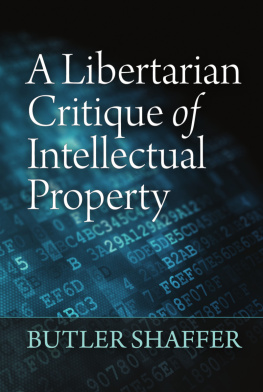The right of John Lemos to be identified as author of this work has been asserted by him in accordance with sections 77 and 78 of the Copyright, Designs and Patents Act 1988.
All rights reserved. No part of this book may be reprinted or reproduced or utilised in any form or by any electronic, mechanical, or other means, now known or hereafter invented, including photocopying and recording, or in any information storage or retrieval system, without permission in writing from the publishers.
Routledge Studies in Contemporary Philosophy
Nature and Normativity
Biology, Teleology, and Meaning
Mark Okrent
Formal Epistemology and Cartesian Skepticism
In Defense of Belief in the Natural World
Tomoji Shogenji
Epistemic Rationality and Epistemic Normativity
Patrick Bondy
From Rules to Meanings
New Essays on Inferentialism
Edited by Ondej Beran, Vojtch Kolman, and Ladislav Kore
Toleration and Freedom from Harm
Liberalism Reconceived
Andrew Jason Cohen
Voicing Dissent
The Ethics and Epistemology of Making Disagreement Public
Edited by Casey Rebecca Johnson
New Directions in the Philosophy of Memory
Edited by Kourken Michaelian, Dorothea Debus, and Denis Perrin
A Pragmatic Approach to Libertarian Free Will
John Lemos
For more information about this series, please visit: www.routledge.com
Allen, R. F. (2005). Free will and indeterminism: Robert Kanes libertarianism. Journal of Philosophical Research 30: 341355.
Ayer, A. J. (1954). Freedom and necessity. In Philosophical Essays , 320. New York: St. Martins Press.
Baker, G. and Gollub, J. (1990). Chaotic Dynamics: An Introduction . Cambridge: Cambridge University Press.
Balaguer, M. (1999). Libertarianism as a scientifically reputable view. Philosophical Studies 93: 189211.
. (2004). A coherent, naturalistic, and plausible formulation of libertarian free will. Nous 38: 379406.
. (2010). Free Will as an Open Scientific Problem . Cambridge, MA: MIT Press.
. (2014). Replies to McKenna, Pereboom, and Kane. Philosophical Studies 169: 7192.
Baumeister, R., Masicampo, E., and DeWall, C. (2009). Prosocial benefits of feeling free: Disbelief in free will increases aggression and reduces helpfulness. Personality and Social Psychology Bulletin 35: 260268.
Berkeley, G. ([1710] 1998). A Treatise Concerning the Principle of Human Knowledge , ed. J. Dancy. Oxford: Oxford University Press.
Bishop, R. C. (2011). Chaos, indeterminism, and free will. In The Oxford Handbook of Free Will , 2nd ed., ed. R. Kane, 84100. New York: Oxford University Press.
Brembs, B. (2010). Towards a scientific concept of free will as a biological trait. Proceedings of the Royal Society: Biological Sciences 298: 930939. doi:10.1098/rspb.2010.2325
Briegel, H. J. and Mueller, T. (2015). A chance for attributable agency. Minds and Machines 25: 261279.
Caruso, G. (2012). Free Will and Consciousness: A Determinist Account of the Illusion of Free Will . Lanham, MD: Lexington Books.
. (2016). Free will skepticism and criminal behavior: A public health quarantine model. Southwest Philosophy Review 32: 2548.
Caruso, G. and Pereboom, D. (forthcoming). Hard-incompatibilist existentialism: Neuroscience, punishment, and meaning in life. In Neuroexistentialism: Meaning, Morals, and Purpose in the Age of Neuroscience , ed. G. Caruso and O. Flanagan. New York: Oxford University Press.
Chisholm, R. M. ([1964] 2002). Human freedom and the self. The Lindley Lecture. Department of Philosophy, University of Kansas. In Free Will , ed. R. Kane, 4758. Oxford: Blackwell.
. (1976). Person and Object: A Metaphysical Study . La Salle: Open Court.
Clarke, R. (1995). Toward a credible agent-causal account of free will. In Agents, Causes, and Events , ed. T. OConnor, 201215. New York: Oxford University Press.
. (2002). Libertarian views: Critical survey of noncausal and event-causal accounts of free agency. In The Oxford Handbook of Free Will , ed. R. Kane, 356385. New York: Oxford University Press.
. (2003). Libertarian Accounts of Free Will . Oxford: Oxford University Press.
. (2012). How to manipulate a compatibilistically free agent. American Philosophical Quarterly 49: 139149.
Copp, D. (2003). Ought implies can, blameworthiness, and the principle of alternative possibilities. In Moral Responsibility and Alternative Possibilities: Essays on the Importance of Alternative Possibilities , ed. M. McKenna and D. Widerker, 265299. Burlington, VT: Ashgate.
Dennett, D. (1978). On giving libertarians what they say they want. In Brainstorms , 286299. Cambridge, MA: MIT Press.
. (1984a). Elbow Room . Cambridge, MA: MIT Press.
. (1984b). I could not have done otherwiseso what? The Journal of Philosophy 81: 553567.
. (2003). Freedom Evolves . New York: Viking Press.
Doyle, R. (2011). Free Will: The Scandal in Philosophy . Cambridge, MA: I-Phi Press.
Double, R. (1991). The Non-Reality of Free Will . New York: Oxford University Press.
. (2002). The moral hardness of libertarianism. Philo 5: 226234.
. (2017). The hard-heartedness of some libertarians: A reply to John Lemos. The Journal of Philosophical Research 42. doi:10.5840/jpr2017511103
Edwards, P. (1958). Hard and soft determinism. Originally in Determinism and Freedom in the Age of Modern Science , ed. Sidney Hook. New York: New York University Press. Reprinted in Free Will , ed. R. Kane, 5967. Oxford: Blackwell.
Ekstrom, L. (2000). Free Will: A Philosophical Study . Boulder: Westview Press.
. (2002). Libertarianism and Frankfurt-style cases. In The Oxford Handbook of Free Will , ed. R. Kane, 309322. New York: Oxford University Press.
. (2003). Free will, chance, and mystery. Philosophical Studies 113: 153180.
Fischer, J. M. (1982). Responsibility and control. The Journal of Philosophy 89: 2440.
. (1994). The Metaphysics of Free Will . Oxford: Blackwell.
. (1999). Recent work on moral responsibility. Ethics 110: 93139.
. (2000). Excerpts from John Martin Fischers discussion with members of the audience. Journal of Ethics 4: 408417.
. (2006). My Way: Essays on Moral Responsibility . New York: Oxford University Press.
Fischer, J. M. and Ravizza, D. (1998). Responsibility and Control: A Theory of Moral Responsibility . New York: Cambridge University Press.
Flanagan, O. (2002). The Problem of the Soul: Two Visions of the Mind and How to Reconcile Them . New York: Basic Books.
Frankfurt, H. (1969). Alternate possibilities and moral responsibilities. The Journal of Philosophy 66: 829839.
. (1971). Freedom of the will and the concept of a person. The Journal of Philosophy 68: 520.

